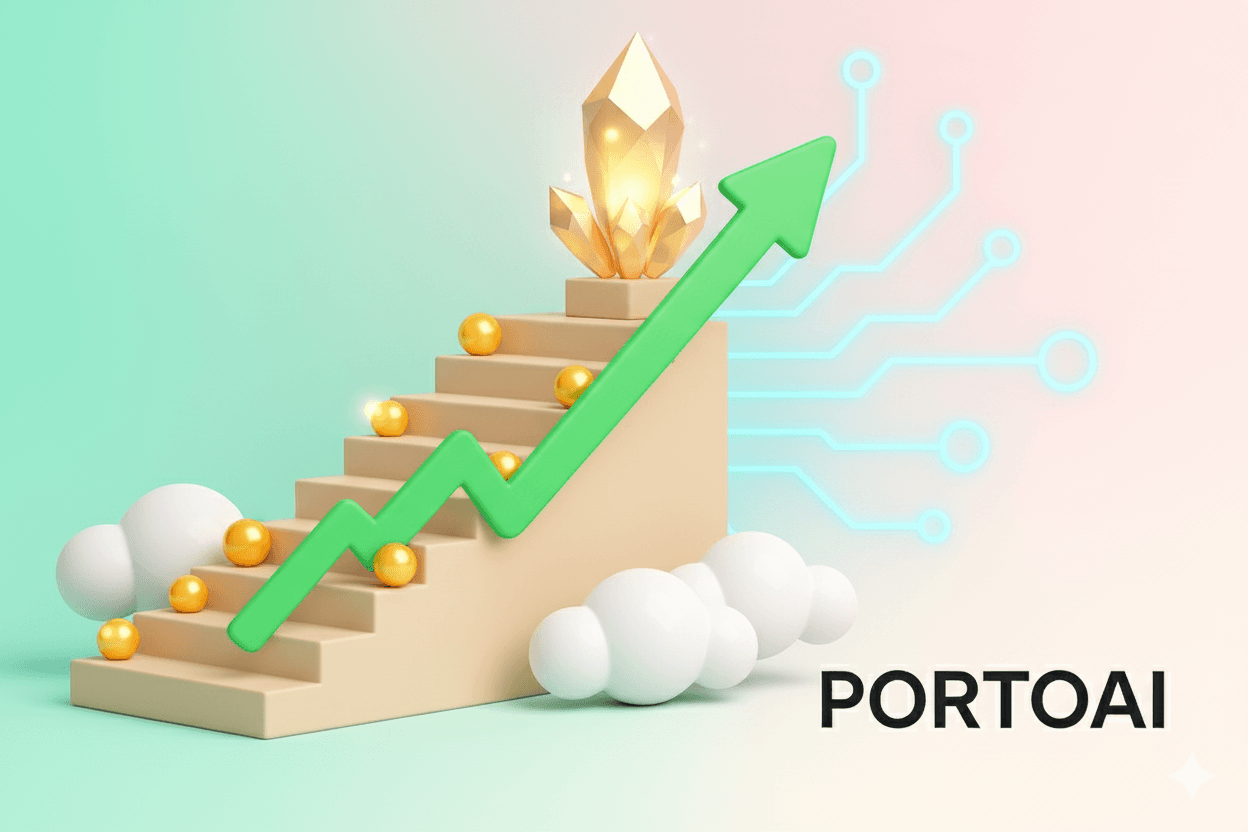Should I Redeem Funds When Markets Crash? Data-Driven Investment Strategy

Venkateshwar Jambula
Lead Market Researcher
4 min read
•Published on September 12, 2024
•Navigating Market Downturns: Should You Redeem Your Funds?
The financial markets are inherently cyclical, and periods of decline are an inevitable part of the investment landscape. When significant market downturns occur, often triggered by unforeseen global events, a natural human response is fear and uncertainty. This can lead many investors to question their strategy, with the urge to redeem their funds becoming a prominent consideration.
At PortoAI, we advocate for a disciplined, data-driven approach to investing, especially during volatile times. Instead of succumbing to emotional reactions, understanding market dynamics and formulating a strategy based on facts is paramount. This guide explores the critical factors to consider when markets are experiencing a downturn, helping you make informed decisions aligned with your long-term financial objectives.
Understanding Market Performance: A Data Perspective
Recent market movements, while unsettling, provide valuable data points. For instance, significant drops in major indices like the BSE Sensex and Nifty 50, alongside corresponding declines in equity fund valuations, highlight the impact of macroeconomic shocks. Conversely, debt funds may exhibit more resilience or even positive returns, underscoring the importance of portfolio diversification.
- Equity Market Impact: Equity investments are susceptible to sharp declines during periods of economic uncertainty. A 20-40% drop in equity fund values is not uncommon during severe downturns.
- Debt Fund Performance: Debt instruments often offer a stabilizing effect, with debt funds potentially providing modest gains or smaller losses compared to equities.
This divergence emphasizes that redeeming funds solely based on headline market drops can lead to realizing paper losses permanently and forfeiting potential future recovery.
The Pitfalls of Redeeming During a Downturn
Making the decision to redeem investments during a market crash is a critical juncture. Consider these points:
The Illusion of Loss Prevention
- Notional vs. Realized Losses: An investment decline on paper is a notional loss. It only becomes a realized loss when you sell your investment at a price lower than your purchase price. Redeeming in a downturn locks in these losses, eliminating any possibility of recovery.
- Opportunity Cost: By redeeming, you not only accept the loss but also miss out on the potential for future gains when the market inevitably recovers. The capital is then out of the market, unable to participate in the rebound.
Impact on Long-Term Goals
For investors with a long-term horizon, market downturns are often opportunities rather than reasons for panic. The rationale is that recovery is a natural market phenomenon. Staying invested allows your portfolio to benefit from this recovery, potentially recouping losses and even generating profits over time.
Lump Sum vs. SIP: Strategic Considerations
The approach to redeeming funds can differ based on your investment method.
For Lump Sum Investments
Lump sum investments are highly sensitive to market timing. If you invested a significant amount just before a downturn, the immediate impact can be substantial. However, the core principle remains: avoid crystallizing losses unless there are fundamental issues with the underlying assets. If your investment thesis remains sound and your horizon is long-term, weathering the storm is often the most prudent strategy.
For Systematic Investment Plans (SIPs)
SIPs are inherently designed to mitigate the risks associated with market volatility through a strategy known as Rupee Cost Averaging.
- Rupee Cost Averaging Explained: By investing a fixed amount at regular intervals, you automatically purchase more units when prices are low and fewer units when prices are high. This averages your purchase cost per unit over time, potentially lowering your overall cost basis.
- Enhanced Recovery Potential: During a market downturn, continuing your SIP allows you to acquire more units at lower prices. As the market recovers, this larger base of units can significantly accelerate your portfolio's return to its previous value and beyond.
Leveraging Data for Confident Decisions with PortoAI
In times of market stress, emotional decision-making can derail even the most well-intentioned investment plans. PortoAI empowers investors to cut through the noise and act with confidence:
- PortoAI Market Lens: Utilize advanced analytics to gain a clear, data-backed perspective on market conditions, identifying trends and potential opportunities that might be obscured by short-term volatility.
- Portfolio Analysis: Our platform helps you analyze the current state of your holdings, assess risk exposure, and identify assets that may warrant re-evaluation or strategic adjustment – not based on panic, but on objective data.
- Risk Management Tools: Understand your portfolio's risk profile with our sophisticated risk console, enabling you to make informed decisions about asset allocation and risk mitigation strategies.
The Verdict: Stay Invested, Strategize Intelligently
Redeeming funds during a market downturn is generally a counterproductive strategy for long-term investors. It transforms notional losses into real ones and forfeits the potential for market recovery. Instead, focus on:
- Portfolio Review: Analyze your current holdings objectively.
- Strategic Rebalancing: Identify opportunities for rebalancing or adjusting your portfolio for long-term resilience when markets stabilize.
- Disciplined Investing: Adhere to your long-term investment plan, leveraging tools like SIPs to benefit from market cycles.
Unprecedented times call for informed, strategic responses. Consult with your financial advisor and leverage data-driven insights, such as those provided by PortoAI, to build a robust strategy that navigates market volatility and positions you for sustained growth.
Happy Investing!
Blog
Investment Insights and Tips
Explore our latest investment strategies and insights.

Stocks
Master Investment Psychology: Control Emotions for Smarter Stock Decisions
The Psychology of Stock Investment: Understanding Emotions That Affect Investment Decisions A stock market is a funny place – both the seller and buye...
Venkateshwar Jambula
November 7, 2024
•4 min read

Stocks
Power Grid India Stock: Analyzing PGCIL's Price Movements & Future
The Rise and Fall: Unraveling the Power Grid Corporation of India Stock Price The Power Grid Corporation of India Stock Price (PGCIL) has experienced ...
Venkateshwar Jambula
November 6, 2024
•10 min read

Stocks
Are Multibagger Stocks Still Possible in 2025? Your AI Guide
These 6 Multibagger Stocks Exploded in 2025 — Is Your Portfolio Still in 2022? Till June 2025, the benchmark Sensex has risen by around 4%, reflecting...
Venkateshwar Jambula
November 5, 2024
•11 min read

Stocks
Top 5 Indian Growth Stocks & Sectors for 2025: AI-Driven Insights
Top 5 Best Growth Stocks in India & Sectors to Watch in 2025 You see the market correction in late 2024 and early 2025 was driven by weak economic...
Venkateshwar Jambula
November 4, 2024
•9 min read